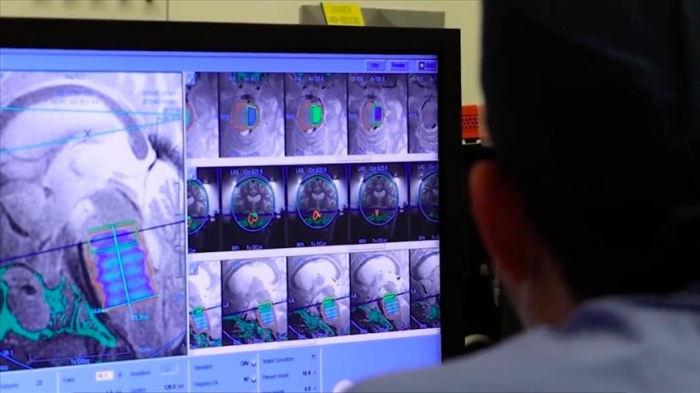The hope is that the procedure, done during a clinical trial at Toronto's Hospital for SickKids and Sunnybrook Health Sciences Centre, will lead to better treatment for terminal brain tumors in children.
The problem in treating the brain tumor is what is called the blood-brain barrier, a protective network of cells that can prevent doctors from reaching and treating areas in the brain, doctors said.
In the medical first, doctors used focused ultrasound technology to temporarily open the barrier with soundwaves, allowing a drug to pass through and treat the tumor.
“Focused ultrasound is an innovative and non-invasive approach to more effectively delivering chemotherapy directly to the tumor," said Dr. Nir Lipsman, director of Sunnybrook's Harquail Centre for Neuromodulation, in a statement.
"Our hope is that this continued research will bring us closer to enhancing treatments to help change the course of the disease.”
The disease is called Diffuse Intrinsic Pontine Glioma (DIPG). It is the most common form of brain tumor in children under the age of 15.
“Current treatment for DIPG is limited to radiation, which can slow progression of the tumor for a period of time but does not have longer-term effects,” said Dr. James Rutka, director of the Arthur and Sonia Labatt Brain Tumour Research Centre.
“Focused ultrasound technology is a promising drug-delivery strategy that is helping us penetrate the blood-brain barrier in a novel way. Conducting this trial will help us build new and innovative treatment pathways for children with DIPG,” he said.
Further studies will be conducted with 10 patients between five and 18 years of age who have DIPG.


























-1745485667.jpg&h=190&w=280&zc=1&q=100)





















